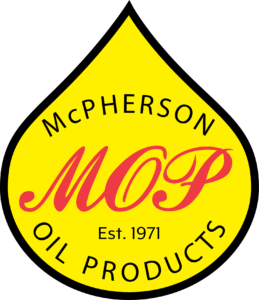Implementing a Successful Root Cause Failure Analysis Program
05 Feb 2020, Posted by in Oil Tips While the end goal of every root cause failure analysis (RCFA) RCFA program is the same – to maximize productivity and minimize unscheduled equipment downtime by preventing recurrence of the same or related failure – some programs are more effective than others.
While the end goal of every root cause failure analysis (RCFA) RCFA program is the same – to maximize productivity and minimize unscheduled equipment downtime by preventing recurrence of the same or related failure – some programs are more effective than others.
Best-in-class programs are built to deliver actionable insights that enhance the long-term success of an operation, and these programs are typically built around a few fundamental best practices.
Let’s take a closer look.
Structure your program around key improvement opportunities
Instead of using RCFA to troubleshoot equipment challenges on an individual basis, operators should build a program around broader goals that reflect key business improvement opportunities.
For example, these could include increasing plant capacity or reduced cycle time. Or, they could focus on reducing overall maintenance costs, either by eliminating repetitive equipment failures or minimizing scheduled downtime.
To identify the best opportunities, operators should utilize a methodical, structured approach that relies on historical data to assess what areas have typically hindered optimal equipment productivity or efficiency. Operators can then take this information to develop a plan that will properly inform corrective actions that can be implemented.
Finally, and most importantly, operators must continuously assess the success of the RCFA program and be prepared to modify the program accordingly to ensure long-term success.
Build RCFA into your operational culture
Implementing a successful RCFA program often requires a culture change. Management should be involved in building the program from the start and it should be viewed as a long-term investment by the organization.
Too often, these programs are seen as the sole responsibility of a plant floor technician, for whom day-to-day priorities may take precedence over critical RCFA tasks.
But, if the RCFA program is given sufficient priority, these programs can be far more successful. The plant manager should help lead the program and work directly with the responsible technician. By circumventing the normal chain of command, the team can work together to better define opportunities, suggest and implement corrective actions, and monitor the impact of the actions taken.
Leverage partner expertise
Whenever possible, operators should also look to work with their partners – including equipment builders and lubricant suppliers – to help build, implement and assess RCFA programs. These partnerships offer an easy opportunity for operators to enhance on-the-ground support and expand the knowledge base of the team managing the RCFA initiative.
ExxonMobil and McPherson Oil frequently work with customers across a range of industries to help build these programs, leveraging decades of field experience to help operators understand the best opportunities to improve operational productivity and profitability. Contact us today to learn more about how we can help you increase productivity and profitability.
– by Terry Woram via ExxonMobil’s Mobil Connect
About: McPherson Oil has provided the southeast with quality products and services since 1971. As a proud distributor of ExxonMobil products, we offer these services through our belief in TPM – Total Petroleum Management. Through our TPM program, McPherson brings a valued-added difference to its customers by meeting all of their petroleum needs. Our commitment to our customers is reflected in our company vision and mission statements. McPherson proudly services Alabama, Arkansas, North and Central Georgia, Mississippi coast, Florida panhandle, Greater Chattanooga Area, the Greater New Orleans Area and Louisiana and Mississippi Gulf Coast. McPherson Oil is an authorized ExxonMobil distributor.
